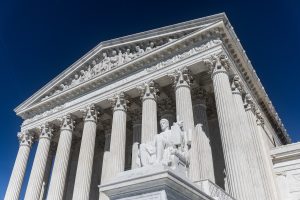Whistleblower Reward Laws protect employees and former employees. More specifically, SEC Bounty Actions, CFTC Bounty Actions, and other whistleblower reward laws protect individuals who expose illegal conduct. These laws provide employee whistleblower protections including anonymous reporting, protections to former employees, and allowances to use confidential information.

Employee Whistleblower Protection: Anonymous Reporting
CFTC and SEC Bounty Actions offer an Anonymous Reporting whistleblower protection. This protection allows whistleblowers to expose illegal schemes anonymously through a lawyer. The lawyer verifies the identity of the whistleblower, but the Whistleblower’s identity remains anonymous to the agency and wrongdoers. As such, this protection protects the Whistleblower’s identity from their employer and other employees. Further, it encourages whistleblowers to expose hard to detect fraud because it protects their professional career.
Employee Whistleblower Protection: Former and Retired Employees Retain Their Whistleblower Rights
Many employers require former employees to sign releases when they are terminated and receive severance. This whistleblower protection prevents employers from forcing employees to sign releases that waive their bounty action whistleblower rights. In fact, the SEC fines companies that attempt to force employees to waive their whistleblower rights.
Former and retired employees retain their bounty action whistleblower rights regardless of the releases they have sign. In fact, if they have signed a release that takes their bounty action whistleblower rights, they should contact a lawyer to review the release.
Whistleblower Protection: Use of Confidential Information
Whistleblower Reward Laws allow whistleblowers to use and take confidential information. This employee whistleblower is narrowly tailored to protect use of confidential information that proves illegal conduct. The protection extends to trade secret, intellectual property, and other confidential information. Overall, this protection allows employees and former employees to use protected communications and documents to prove bounty actions.
More Information of Bounty Actions and Employee Whistleblower Protections
For more information on bounty action and whistleblower reward employee whistleblower protections, please go to the following webpages: Employee Whistleblower Lawyer, Employee Whistleblowers Can Earn Large Rewards for Exposing Fraud, and Employee Whistleblower Rights








